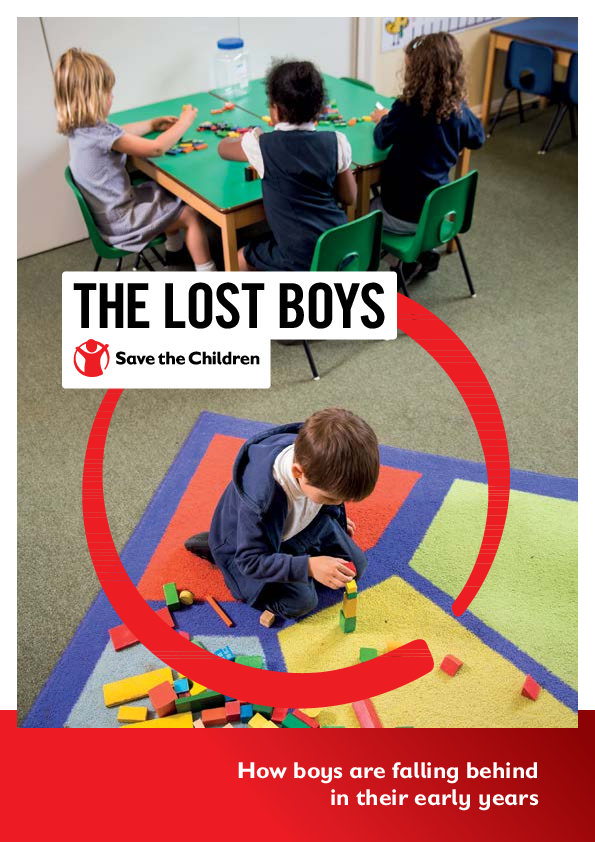Boys and Reading
Kirstie Beaven takes a look at the myths and realities around boys and reading, and what we can do about the gender gap in school
Recently, we received a flyer on ‘Getting the Best out of Boys’. Put together by Oxford Owl (part of the Oxford University Press), it gave 5 top tips on on encouraging boys with their school career and specifically with reading. It did caveat that these tips were just as good for girls - but the implication was that boys needed some special treatment to help them achieve at school.
They ranged from ‘Boys seem to need more praise than girls’ to broad advice about talking to your child, and about encouraging them to be independent. There was even a little link to their aimed-at-boys range of first reading books, Project X.
“‘Make sure you pick the right books! Boys tend to like books with action, humour, good plots and books with gadgets in for example.’”
Oh yes. Girls are all about those crappy slow, plot-less, humourless books unconnected to the contemporary world. They just love them. It’s only boys that actually notice the quality of the books they are reading.
While I might joke about this, its underlying message pointed to a story we’ve all heard about boys and academic achievement.
“Are boys really at a disadvantage because their brains just aren’t wired that way?”
Boys underachieve academically. Boys develop later than girls. Boys are not interested in reading, because they have male brains that are only interested in logic, machinery and patterns.
This is a pervasive narrative. But is it true? Are boys really at a disadvantage because their brains just aren’t wired that way?
Well, there is a significant gender gap in achievement in the UK at primary level. And it’s mainly in English, communication and language skills. In 2016, Save the Children published a report into children’s early language and communication skills at just before age 5, when children reach Reception classes.
They found that boys are nearly twice as likely as girls to fall behind in these crucial skills - the skills that set you up to be able to read, but also allow you to be able to play and negotiate play, to share knowledge and interests, and articulate your own feelings.
We must of course remember that there are many other factors involved in this – ethnicity, family background, poverty. In fact, the biggest indicator of falling behind is actually poverty, not gender. But there is still a significant and independent gender gap.
Why should it be that boys are behind girls in understanding and experiencing the benefits of clear communications?
To be clear, at age 5, 14% of girls are struggling with this, and 25% of boys are. What can account for this difference? And for boys’ (perceived) relative slowness with reading and writing? And what can we do to fix it? Should we be reading ‘boy-specific’ books, and making ‘boy-friendly’ reading corners?
As always with these gender divisions, the jury is out - it it nature or nurture?
“Should we be reading ‘boy-specific’ books, and making ‘boy-friendly’ reading corners?”
Let’s take a look at nature. We’ve all heard that there is a male brain, and the hypothesis that the extension of this - the extreme male brain - is implicated in autism diagnoses. The idea that there is a systemising brain and an empathising one, and the boys get the former and the girls the latter, has been popular for 15 years or more.
So getting boys to engage with emotive language, maybe with reading, with fiction, with imagination must be harder, right? Their brains are against us.
Except, this isn’t quite true.
In 2009 the UK Department for Children, Schools and Families (now Department for Education) published Gender & Education – Mythbusters, with this guidance:
“even proponents of neurological gender difference caution that there is more [difference] within sex[es]… than between sex[es].”
That is, even if you find a difference between boys’ and girls’ brain function, you will find more difference between the brains of some boys and other boys, or some girls and other girls brains.
This refers to the ongoing research done by Simon Baron-Cohen, one of the primary exponents of the neurological sex difference hypotheses. Even he, in his research, found that there was significant overlap between girl and boy brains. In fact, without other information it’s really hard, and probably meaningless, to assess the sex of a brain. So it probably isn’t their special boy brains meaning boys can’t get into talking or reading or listening.
“boys often come to school less independent and less able to control their impulses than their female peers”
Let’s take a look at their physical development then. Anecdotally, we hear reports that boys often come to school less independent and less able to control their impulses than their female peers. Less able to dress themselves for example, or less able to sit still on the carpet, or concentrate on a task or focus on a book. How many times have you heard that boys’ fine motor skills haven’t developed yet, that they are not capable of fussing with zips and buttons or holding a pen and writing neatly.
And yet, as with the brain development, everything happens in its own time for each individual - while we can observe differences in motor development that split along gender lines, there are always enough individuals that do not conform to make conclusions difficult to draw. One study found that earlier development of fine motor skills was correlated to factors such as maternal age or education level, as well as gender.
This BBC experiment looks at the difference in how adults treated children based on their gender.
So we must return to nature’s partner, nurture - what difference is there in our society, in our parenting, in our schooling that might affect boys’ achievement in communication, language and ultimately reading and writing?
There is some evidence that we - in our society - treat boys quite differently to girls around communication. Parents have been observed to talk less to their sons than to their daughters. And not just talk less, but to talk differently - in this small study, parents used more emotional language with their pre-school daughters than with their pre-school sons.
There is also a body of research around what we as parents and in wider society expect from our children based on their gender. One paper from 2017 found that parents were likely to reinforce what they saw as stereotypically appropriate behaviour and discourage behaviour that went against gender norms. For example:
“‘Generally, mothers respond less negatively to a son’s risky and disruptive behaviors 15-17, and are less encouraging of a son’s prosocial behaviors’”
The Save the Children report found that there were also some significant activities that parents do more with girls than boys pre-school: singing poems/rhymes/songs, drawing and painting and teaching them their letters. There was only one activity they were more likely to do with boys, and that was playing sport.
“When we think that girls might be disadvantaged in their sporting careers by society’s expectations and our gender biases, might we think the same about boys and their skill with letters? ”
What might all this be (implicitly) telling our sons? If we speak a little less to them, their whole lives. If when we speak we are a little less emotional with them, a little more functional. If we tend to encourage them to talk less about feelings and people and more about facts and logic. If we expect that they can’t listen as well as girl, can’t hold a paintbrush, can’t learn to regulate their behaviour in social situations, can’t focus on a story, or can’t apply them selves to a task. When we think that girls might be disadvantaged in their sporting careers by society’s expectations and our gender biases, might we think the same about boys and their skill with letters? What messages are they getting from the world around them, about what their behaviours should be? About what we value?
The good thing about the nurture argument is that we can change it. We can decide if we play along with the prevailing idea that boys CAN’T do this or that, the same way we can change our expectations about what girls can and can’t do. If we want to narrow this gender gap in reading and writing, probably the first thing we need to fix is our narrow idea of what it means to be a boy. We need to let boys know that we value their listening/thinking/focus/social skills as much as we value those skills in girls. We of course need to also value the skills of speaking up/taking up space/making your voice heard in girls, the way we currently value them in boys.
Oxford Owl’s Project X is misguided, because it restricts boys even further in only being allowed to experience the world through aggression, technology and joking. It’s not that boys can only be that way, it’s that we expect them to behave that way. And they tend to conform to our expectations.
Stories are powerful. They allow you to inhabit other worlds, other people’s thoughts, see things in a different way. They let you explore fear and sadness in safety. They open you up to the world. While we continue to cut a significant proportion of boys off from this, we cut them off from crucial life skills that have far reaching effects, from lack of literacy, to low self esteem, to inability to express their needs and emotions.
If we can make any advance on this, simply by changing our own (for the most part) unthinking cultural expectations, shouldn’t we all strive to do it. As with many things, Gloria Steinem has got there before us:
I’m glad we’ve begun to raise our daughters more like our sons - but it will never work until we raise our sons more like our daughters. Gloria Steinem













We introduce our all about books issue and the 2018 gift guide.